
When her only relative, her elder brother is accused of robbing and murdering an old woman loan-shark Read More »
Crime
Shadows in the Palace / Goongnyeo (2007) Mi-jung Kim, Jin-hie Park, Se-ah Yun, Yeong-hie Seo, Crime, Drama, History
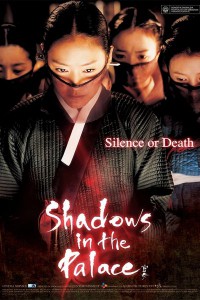
During the Chosun period, a court lady is found dead, hanging by the rafters of the palace. After examining the dead body, place physician Chun-ryung discovers that the dead maid was probably murdered and carries out investigation even though her higher-ups pressure her to close the case as suicide.
Read More »
Dear Mr. Gacy (2010) Svetozar Ristovski, William Forsythe, Jesse Moss, Emma Lahana, Crime, Drama, Thriller
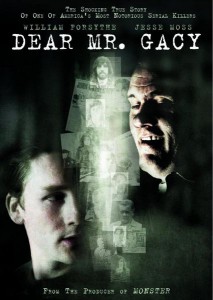
1993. Overachieving college student Jason Moss, fascinated by serial crime, decides to write his criminology class term paper on John Wayne Gacy, who is on death row and scheduled to be executed in six months time. Jason’s criminology professor, Mr. Harris, will only allow Jason to write his paper on Gacy if Jason can come up with a fresh angle, as he himself believes the topic of serial killers is already overexposed.
Read More »
Backflash (2002) Philip J. Jones, Robert Patrick, Jennifer Esposito, Mike Starr, Action, Crime, Drama

Ray Bennett, a lonely video-store owner in the middle of nowhere decides to take some days off his work to think about his future. On the road, he comes across Harley, a very attractive, mysterious woman and ex-prisoner.
Read More »
Firetrap (2001) Harris Done, Dean Cain, Richard Tyson, Mel Harris, Action, Crime
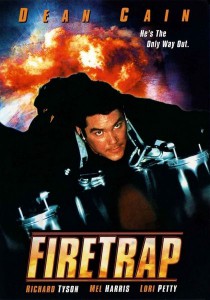
Master burglar Max Hopper is released early after three years and soon gets an exceptional job: stealing an advanced computer-chip from the IQ Industries headquarters. His first attempt fails; when he enters in cop uniform during an emergency board meeting, a fire quickly spreads- he considers it a godsend opportunity and stays, but soon has his hands too full saving other lives and just surviving to concentrate on the chip; only the owner, his wife who just filed for divorce and a few employees remain, but it soon turns out one of them stole company secrets but the arsonist and/or another chip-thieve are among them…
Read More »
Almost Human / Milano odia: la polizia non può sparare (1974) Umberto Lenzi, Tomas Milian, Henry Silva, Laura Belli, Action, Crime, Thriller
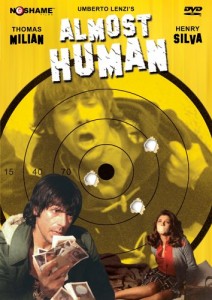
A psychotic small-time criminal realizes that the everyday robberies, rapes and murders he commits aren’t making him all that much money, so he figures to hit the “big time” by kidnapping the daughter of a rich man.
Read More »
Resurrection Man (1998) Marc Evans, David Williamson, Stuart Townsend, Brenda Fricker, Crime, Drama, Thriller
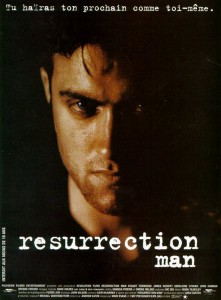
Belfast, in 1970s. Victor Kelly is a young protestant man who hates the Catholics so much that one night he begins to brutally murder them. A reporter soon tries to uncover the murder and obtained prestige for himself, while Victor sinks deeper into madness.
Read More »
The Con Artists / Bluff storia di truffe e di imbroglioni (1976) Sergio Corbucci, Anthony Quinn, Capucine, Adriano Celentano, Comedy, Crime
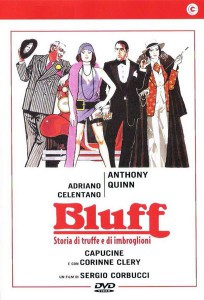
Belle Duke, in order to get revenge on her former lover Philip Bang, organize his jail break. But instead of Philip is the Italian Felice Brianza, AKAS Felix, to escape. Now Felix is obliged to help Philip to escape. He will succeeded and from that moment on the two will join to defraud Belle. The swindle plot become more complicate when Felix falls in love for Philip’s daughter.
Read More »
Graveyard of Honor / Jingi no hakaba (1975) Kinji Fukasaku, Tetsuya Watari, Tatsuo Umemiya, Yumi Takigawa, Action, Crime

A look at the life of renegade yakuza, Rikio Ishikawa, particularly the years from 1946 to 1950 when his violent antics get him in trouble with his own clan, Kawada, and then with the clan of his protector, Kozaburo Imai. In these years, he can rely on Chieko, a young Tokyo courtesan who gives him shelter.
Read More »
Trick Baby (1972) Larry Yust, Kiel Martin, Mel Stewart, Dallas Edward Hayes, Action, Crime, Drama
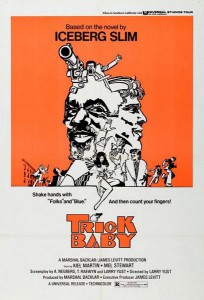
Two Phildelphia con men try to evade gangsters they have conned and cops who are trying to put them in jail.
Read More »